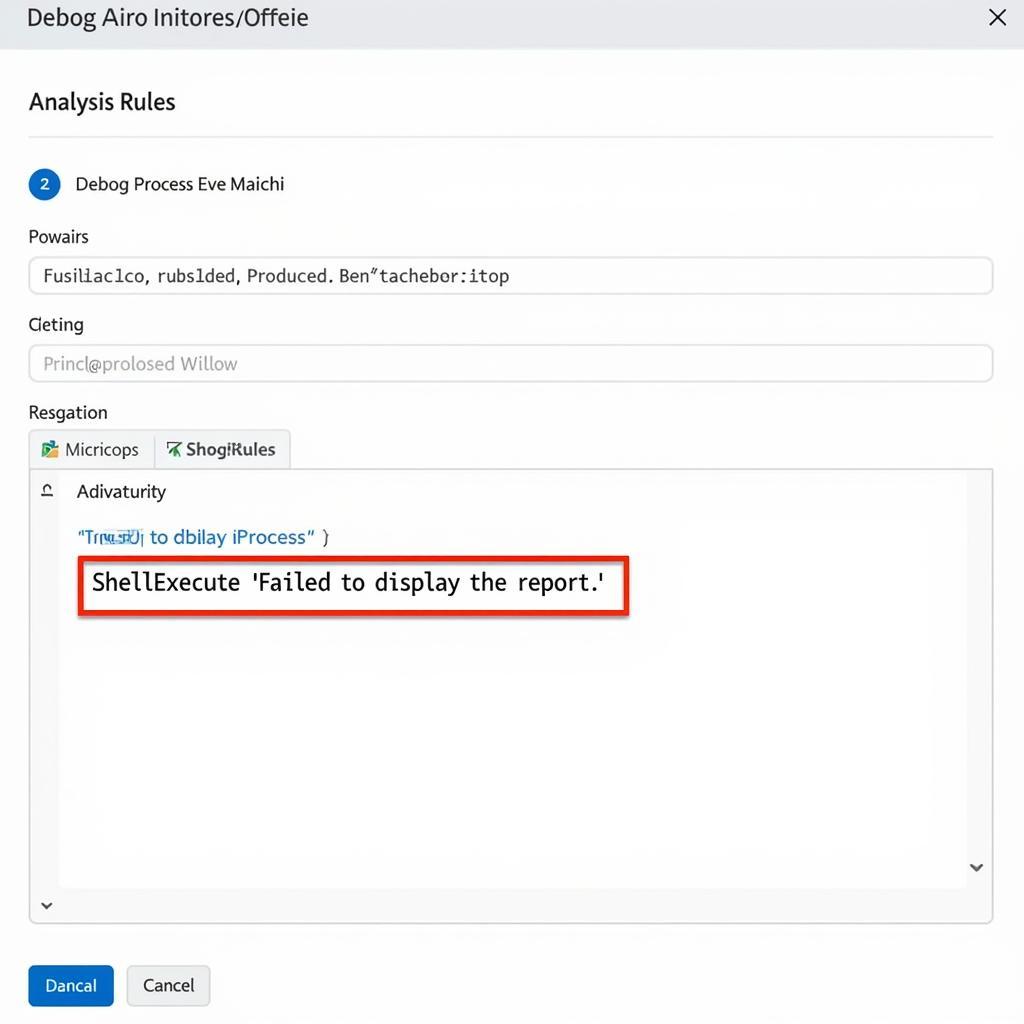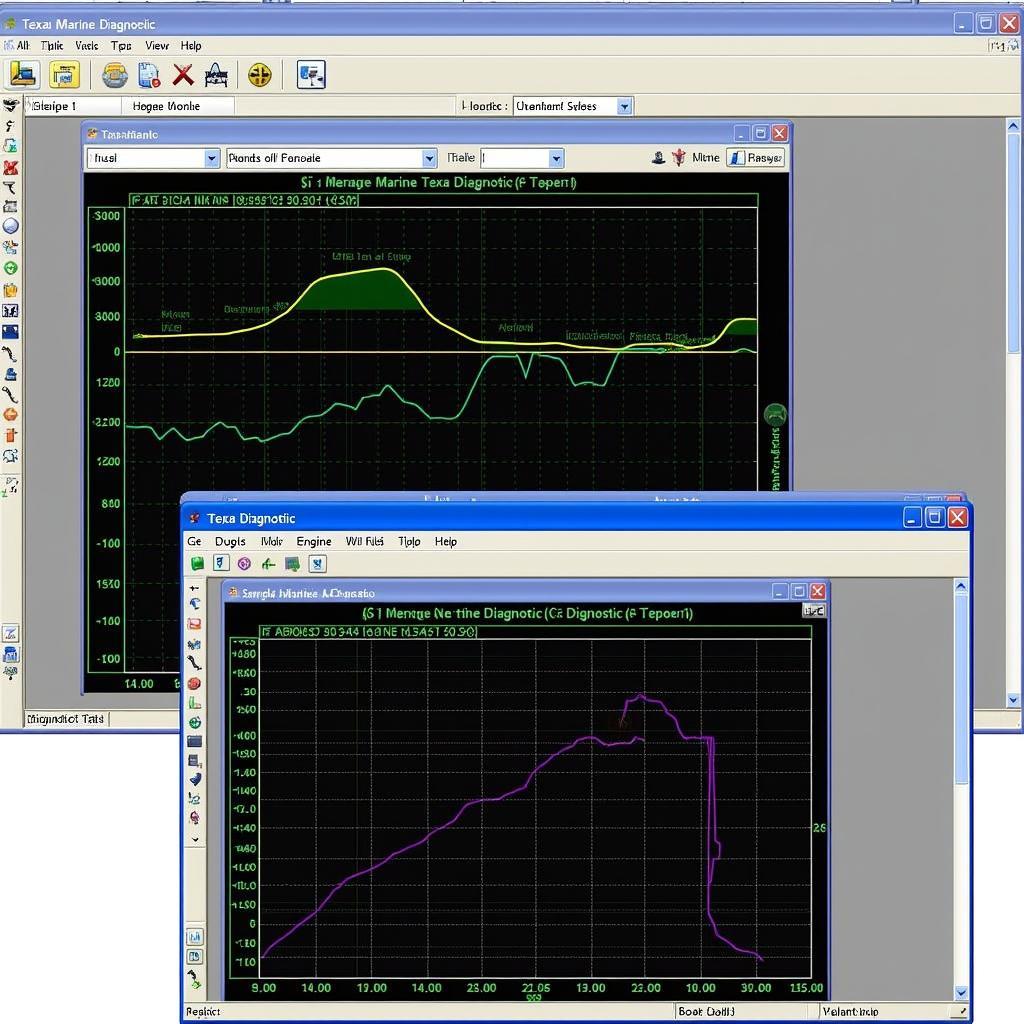In today’s technologically advanced world, vehicles are equipped with sophisticated computer systems that control everything from engine performance to safety features. When a problem arises, pinpointing the cause can feel like searching for a needle in a haystack. That’s where diagnostics programs and tools come into play, offering a lifeline for car owners, repair shops, and automotive technicians alike.
The Power of Diagnostics: Understanding the Basics
Diagnostics programs and tools act as a window into your car’s computer system, allowing you to communicate with it and retrieve valuable information about its health. These tools range from basic code readers to advanced professional-grade scanners, each offering different levels of functionality.
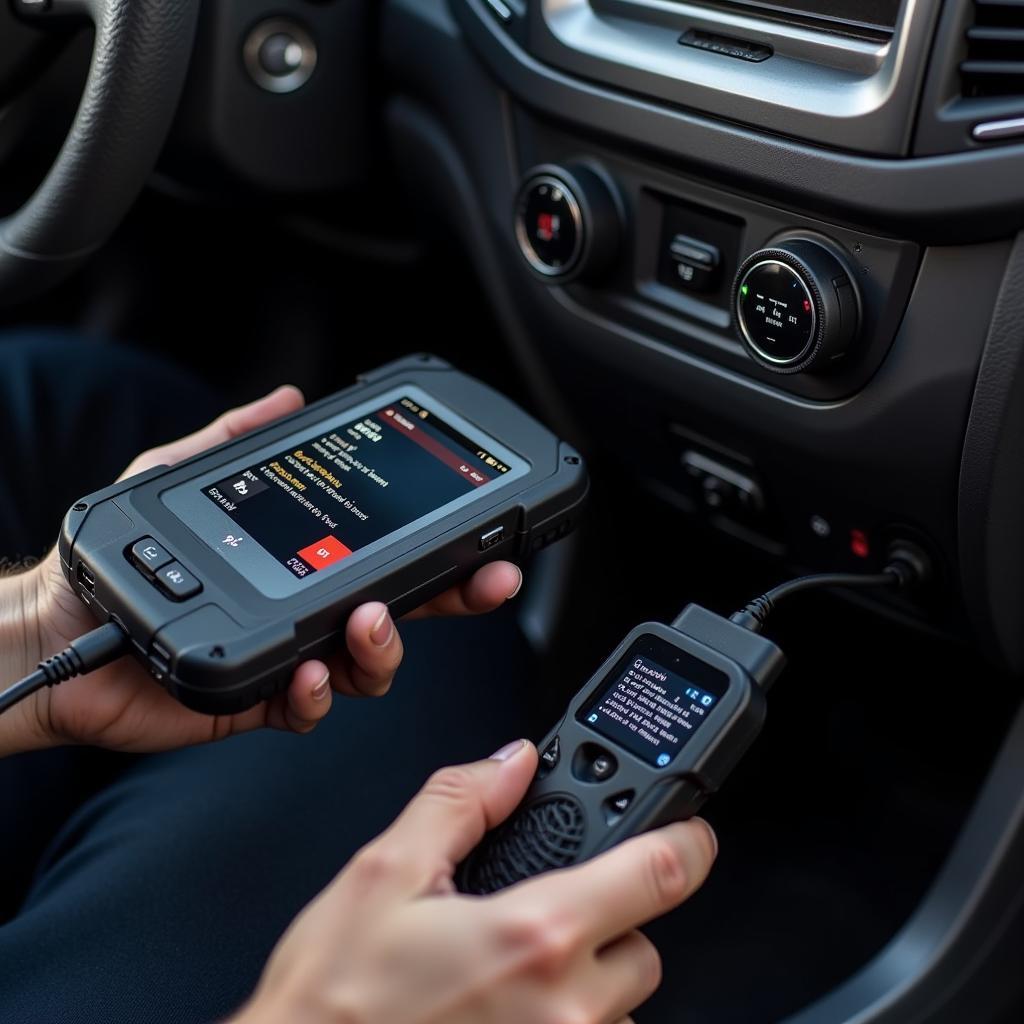 OBD2 Scanner Connected to Car
OBD2 Scanner Connected to Car
Imagine your car’s computer system as a library filled with information about its various components. When an issue occurs, the system stores a specific code, like a misplaced book, indicating the problem area. Diagnostic tools serve as your library card, granting access to these codes and their meaning.
Navigating the World of Diagnostic Tools
Choosing the right diagnostic tool can be daunting, with options available for every skill level and budget. Here’s a quick breakdown:
1. Basic Code Readers:
- Ideal for DIY enthusiasts and car owners looking for a quick check-up.
- Read and clear basic diagnostic trouble codes (DTCs).
- Affordable and easy to use.
2. Advanced Scan Tools:
- Geared towards professional mechanics and experienced DIYers.
- Offer comprehensive diagnostics, including live data streaming, actuator tests, and advanced coding capabilities.
- hd vehicle diagnostic scan tool are a prime example, providing in-depth insights into your car’s systems.
3. Manufacturer-Specific Tools:
- Designed for specific car makes and models.
- Offer the most detailed diagnostics and programming capabilities for that particular brand.
- Often used by dealerships and specialized repair shops.
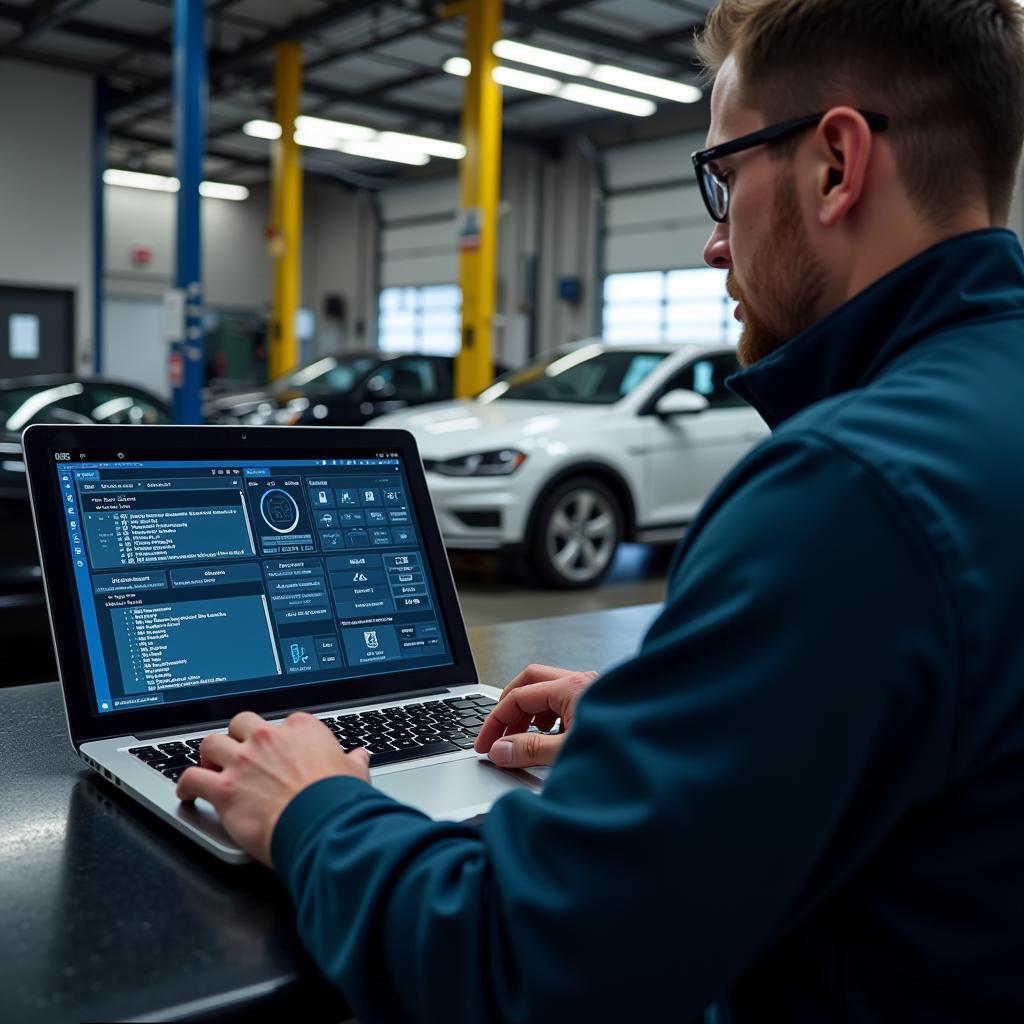 Mechanic Using Diagnostic Software
Mechanic Using Diagnostic Software
“Investing in the right diagnostic tools is crucial for anyone serious about car maintenance and repair,” says John Miller, a seasoned automotive engineer with over 20 years of experience. “It’s like having an X-ray vision for your car, enabling you to see what’s going on under the hood.”
Common Uses of Diagnostics Programs and Tools
Diagnostic tools are incredibly versatile, playing a crucial role in various automotive applications:
- Identifying Engine Problems: Diagnose issues related to engine performance, emissions, fuel system, and more.
- Troubleshooting Transmission Issues: Detect problems with gears, solenoids, and other transmission components.
- Diagnosing ABS and Airbag Systems: Identify faults in critical safety systems.
- Resetting Service Lights: Clear service reminders and warning lights after routine maintenance.
- Programming Keys and Modules: Program new keys, immobilizers, and other electronic modules.
Maximizing Your Diagnostic Experience: Tips and Tricks
- Understand OBD-II: Most vehicles manufactured after 1996 are equipped with an OBD-II port. Familiarize yourself with its location and the type of connector your car uses.
- Choose the Right Tool: Determine your skill level, budget, and the specific diagnostic needs of your car before investing in a tool.
- Read the Manual: Always refer to the user manual for both your diagnostic tool and your vehicle.
- Keep Software Updated: Regular software updates ensure compatibility with the latest vehicle models and access to new features.
- Seek Professional Help: Don’t hesitate to consult a qualified mechanic for complex issues or if you’re unsure about a diagnosis.
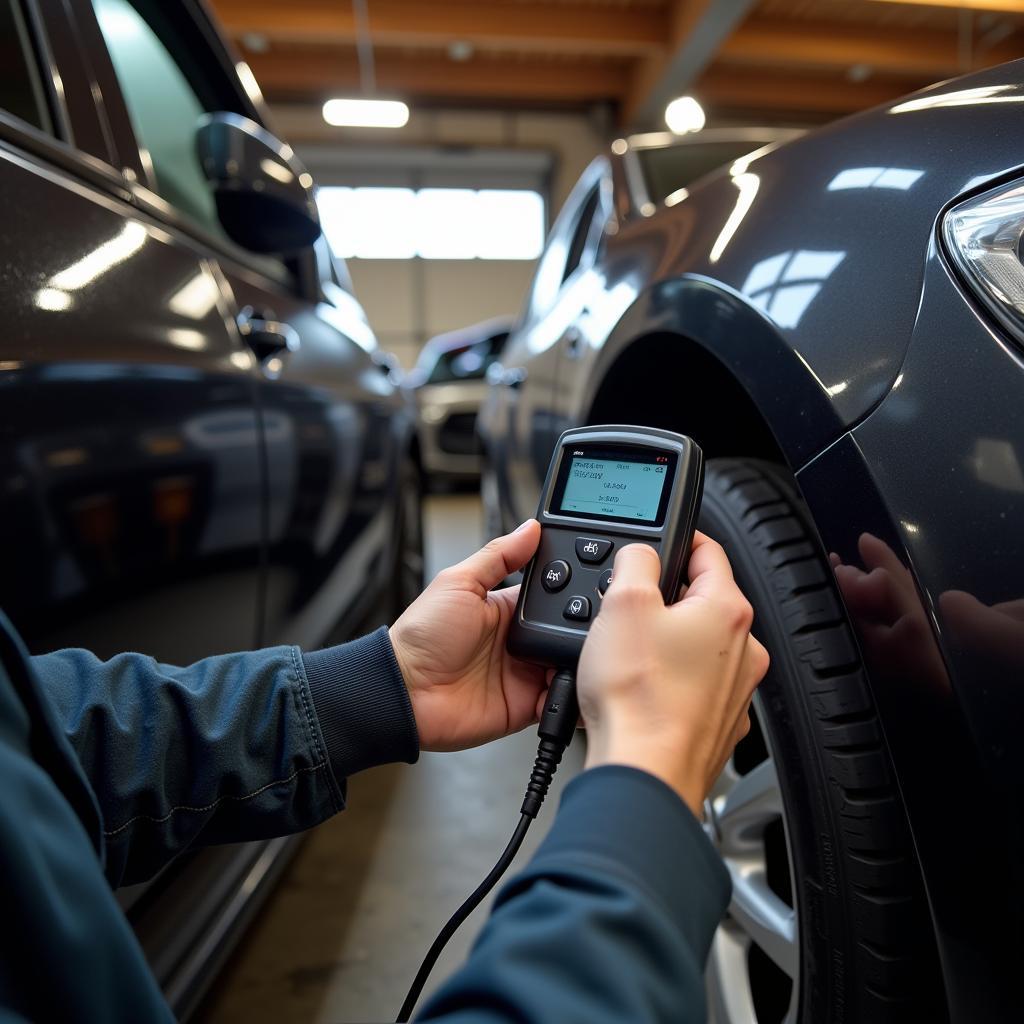 Car Owner Using OBD2 Scanner
Car Owner Using OBD2 Scanner
Conclusion
Diagnostics programs and tools have revolutionized the way we approach car maintenance and repair. From basic code readers to advanced professional-grade systems, these tools empower car owners and technicians to diagnose and resolve issues with greater accuracy and efficiency.
By understanding the basics of automotive diagnostics, choosing the right tools, and following these helpful tips, you can unlock the secrets of your car’s health and ensure a smoother, safer driving experience.
Need assistance choosing the right diagnostics program or tool? Contact the experts at ScanToolUS at +1 (641) 206-8880 or visit our office at 1615 S Laramie Ave, Cicero, IL 60804, USA. We’re here to help!

